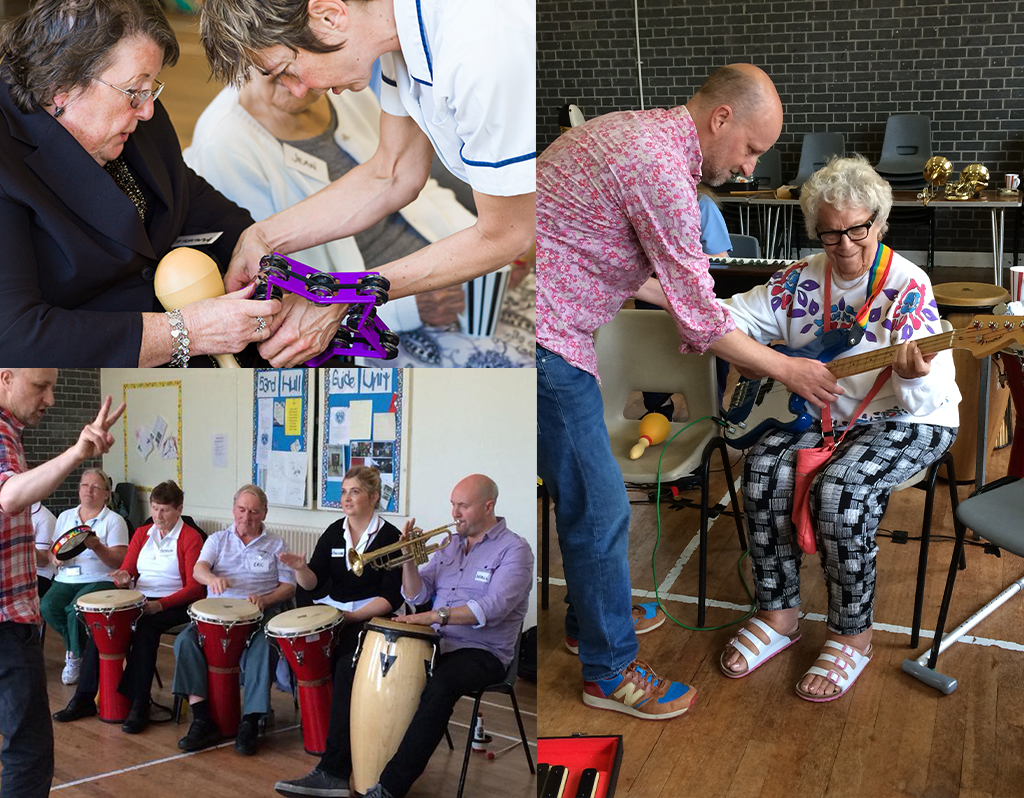It’s been a busy week in Resound, with three largescale projects running in three residency areas. A project with Northamptonshire Music & Performing Arts Trust has sent a team of musicians to special schools to support pupils devising Mozart-inspired music in preparation for the RPO’s all-Mozart programme at the Royal & Derngate on 17th February. A second Resound team have been supporting 95 young people with additional needs from three Berkshire special schools to explore Aaron Copland’s Hoe Down, in preparation for a side-by-side performance with Berkshire Youth Symphony Orchestra and RPO members at Royal Albert Hall in March. Perhaps most excitingly, though, this week was the official launch of the three-year STROKESTRA programme in Hull, a project that has played an important part in the development of Resound’s health & wellbeing strand and one that is very close to the Orchestra’s hearts.
STROKESTRA is a collaborative project designed by RPO Resound and Hull & East Riding Community Stroke Services which uses specially designed group creative music-making techniques to enhance recovery for patients and carers in Hull. Developed between 2014-2016, a pilot programme demonstrated the power of the programme to enhance physical, social, psychological, cognitive and communicative recovery for patients, improve wellbeing for carers, and motivate clinical staff to develop their own practice.
‘It brought me a little bit of myself back; it was the first thing I’d done on my own since the stroke.’ - STROKESTRA Pilot Participant
‘Caring can be a lonely path at times…it has opened my eyes. It’s given me a bit of confidence. I’d
forgotten what a bubbly person I was; I’d forgotten who I was.’ - STROKESTRA Pilot Carer
The partners are excited to begin this three-year rollout which will continue to refine and improve the model whilst reaching nearly 300 patients and carers struggling with stroke-related disabilities and challenges. The launch this week saw the integration of a number of exciting developments aimed at increasing the impact and reach of the programme.
While the pilot worked with ‘community’ patients – patients who have been discharged and receive care and support in their own homes – and their carers, the three-year programme will work with an additional group of ‘residential’ patients who currently reside in in-patient units where they receive round-the-clock care and therapy work. This development will allow the benefits of STROKESTRA to reach patients at an earlier stage in their stroke recovery, while playing an important role in building morale and staff engagement.
The January project also included new leaders and musicians who have been trained in the clinical background and theoretical approach of the programme. Expanding the team in this way means the programme is embedded even more in the life of the Orchestra and ensures we can fulfil our commitment to patients even during busy concert patches.
Finally, the roll-out will include the integration of University of Hull music students and local community music groups, providing training to enable them to support sessions in between RPO visits and supporting the progression of participants from STROKESTRA onto continued community engagement. In time, University of Hull researches will also come on board as research partners, providing a robust, third-party evaluation of the programme and its impact.
Second violinist Sali-Wyn Ryan says, ‘STROKESTRA is an incredibly rewarding project to take part in, because of the opportunity to develop relationships and a rapport with the patients. It can be both emotional and exciting to feel like we play even a tiny part in their recovery.’
The three-year STROKESTRA programme has been generously supported by the Stavros Niarchos Foundation, Garfield Weston Foundation, Dunhill Medical Trust, The Kirby Laing Foundation, Help for Health, the Austin & Hope Pilkington Trust, Hull & East Riding Charitable Trust, and the RPO.

